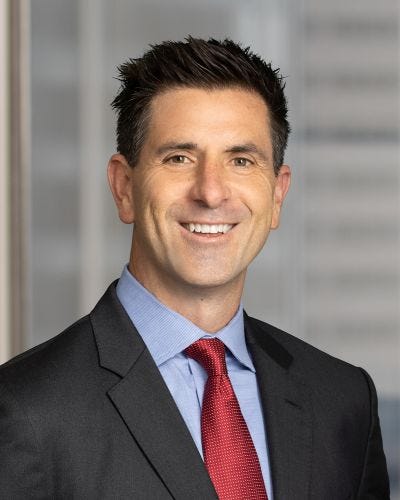ATW lawyers predict class action lawsuits facing CPG brands in 2024
Amin Talati Wasserman attorneys Matt Orr and William Cole highlight class action threats facing CPG brands this year.

At a Glance
- Slack fill lawsuits reached their zenith years ago, but 2023 was a reminder that these cases aren’t in the rearview mirror.
- Several courts on the East Coast have been reluctant to dismiss website accessibility lawsuits at an early stage.
- “Green” claims can provide fertile ground for false advertising class action lawsuits, as evidenced recently in New York.
With 2023 behind us, there’s perhaps no better time than the present to forecast the biggest class action risks facing the CPG category in 2024. And with awards season in full swing, perhaps we can do so with a nod to some of cinema’s greatest hits. Unlike the proverbial box of chocolates, we have a pretty good idea of the landscape that lies ahead for CPG brands in 2024.
But before we anoint 2024’s biggest threat, thank the Academy, and head home, let’s take a look at the contenders:
Slack fill suits
“Just when I thought I was out, they pull me back in.” (Sonny Corleone, “The Godfather”)
Lawsuits over slack fill, which the Food and Drug Administration defines as “the difference between the actual capacity of a container and the volume of product contained therein,” reached their zenith years ago. Since then, slack fill demand letters, lawsuits and settlements have been sporadic. But just when we’d thought we’d seen the last of such suits, demand letters and cases increased in 2023.
Our prediction is this trend will continue in 2024. While federal and state courts had previously been inclined to dismiss slack fill cases at the motion-to-dismiss stage, early dismissals with prejudice now seem harder to come by — with courts often affording plaintiffs several opportunities to amend their complaints.
The cost to defend, and the risks involved, create an inviting opportunity for enterprising plaintiffs, and settlements of these cases have inflated dramatically. Faced with “an offer they can’t refuse,” brands often make the justified business decision to resolve claims confidentially on an individual basis. This has increased settlement values which, in turn, has increased the number of cases being threatened and filed.
While we expect the slack fill trend to continue its upward trajectory in 2024, we see a light at the end of the tunnel. As more brands take advantage of fill lines, clear and conspicuous front-label servings per container, and other methods to mitigate risk, we expect more brands to respond to settlement demands with an offer of their own, “My offer is this: nothing.”
‘Artificial’ flavoring and preservative claims
"Yeah, well, you know, that's just, like, your opinion, man." (The Dude, “The Big Lebowski”)
CPG brands will continue to find themselves “entering a world of pain” from claims involving “natural,” “all natural,” “naturally flavored,” “no artificial flavors,” and the use of ingredients such as malic acid, ascorbic acid or citric acid. These cases generally involve such ingredients being used not as a flavor or preservative, but as an enhancer, flow agent or pH balancer.
At the pleading stage, courts have generally treated arguments above as “his opinion versus her opinion,” allowing the cases to proceed to discovery. Some courts, however, have been willing to dismiss such claims at the pleading stage. See Hawkins v. Coca-Cola Co., 2023 WL 1821944 (S.D.N.Y. Feb. 7, 2023) (complaint allegations insufficient to adequately establish the malic acid was artificial); Hoffman v. Kraft Heinz Food Co., 2023 WL 1824795 (S.D.N.Y. Feb. 7, 2023) (complaint alleged only “the possibility that the product contains artificial DL-Malic acid”); Gouwens v. Target Corp., 2022 WL 18027524 (N.D. Ill. Dec. 30, 2022) (labeling claim did not amount to an affirmative representation that product was free from artificial flavors); Boss v. Kraft Heinz Co., 2023 WL 5804234 (N.D. Ill. Sept. 7, 2023) (same).
Unfortunately, most other courts have yet to follow the lead of Illinois and New York and have generally allowed the cases to proceed. As a result, most of these cases are thrust into discovery and toward class certification, which can be a costly and risky proposition. As a result, we expect these cases to continue to be filed, survive motions to dismiss, and “abide” in 2024.
Website accessibility claims
“It’s only a passing thing, this shadow. Even darkness must pass. A new day will come. And when the sun shines, it will shine out the clearer.” (Samwise Gamgee, “Lord of the Rings”)
Website accessibility claims continue to dominate sweeps week. These suits allege company websites violate the ADA (American with Disabilities Act) because they fail to adhere to the most-recent WCAG (web content accessibility guidelines) standards.
While recent rulings in California largely put an end to these suits, the result was simply an expected journey of cases from the “Shire” of California to “Mount Doom” of New York, Pennsylvania and Florida. Unfortunately, these courts continue to hold that even websites without a nexus to a brick-and-mortar location are public accommodations subject to the ADA.
These same courts in New York, Pennsylvania and Florida have been reluctant to dismiss suits at an early stage on mootness or standing grounds (arguments often successful in ADA cases involve architectural barriers). Many website accessibility lawsuits are brought against businesses endeavoring to make their websites accessible through the use of widget overlays.
But plaintiffs rarely dismiss cases even when substantial compliance with WCAG is demonstrated through the use of such widgets alone. While 2023 brought a ray of hope that the U.S. Supreme Court would put an end to these suits in Acheson Hotels v. Laufer, that hope was crushed when the high court determined the issue was moot and declined to address “tester” standing in the context of ADA website claims.
As a result, businesses who have been hit once, twice and even three times with these suits must continue to endure the darkness and cling to the hope that a new day will come: perhaps in 2025.
‘Green’ claims
“Andy Dufresne, the man who crawled through 500 yards of s*** and came out clean the other end.” (Red, “Shawshank Redemption”)
Companies are increasingly highlighting their commitment to sustainability and a clean environment. Label claims highlighting that commitment can take many forms, including statements that products are “recyclable,” “compostable,” “sustainable,” “plant based” or “biodegradable.”
Because such claims do not necessarily have any universally agreed definition, they can provide fertile ground for false advertising class action lawsuits. This year is already off to a hot start in that regard.
In January 2024, a federal judge in New York ruled a case could proceed in which the plaintiffs challenged the “carbon neutral” claim on spring water products. “Rather than possessing a common, everyday meaning, the term ‘carbon neutral’ is more technical and scientific,” the judge wrote. “Consumers thus may reasonably become confused . . . if it has not previously been explicitly defined for them — as in, before seeing it on the product’s label.” Dorris v. Danone Waters of America, No. 22 Civ. 8717 (NSR) (S.D.N.Y. Jan. 10, 2024).
Although the court’s ruling is disappointing, it does provide guidance on how brands can wade through the fecund territory and come out clean the other side — when it comes to green claims, explicitly and clearly define your label claims.
While environmental, natural, website and slack fill cases will continue to pose threats to CPG brands in 2024, the award for biggest threat in 2024 goes to (insert drumroll) …
Microcontaminant suits
"I need a midi-chlorian count.” "The reading's off the chart. Over 20,000.” (Qui-Gon Jinn and Obi-Wan Kenobi, “Star Wars: Episode I – The Phantom Menace”)
Class actions targeting products with alleged detectible levels of PFAS (per-and polyfluoroalkyl substances) and other microcontaminants are off the chart and will continue to increase in 2024. Contaminants such as PFAS, lead and other substances are ubiquitous in modern society, and flow in and through all things.
As testing becomes more and more refined, plaintiffs will “find” more and more “contaminants” in consumer products. When detected, these substances are typically present in exceptionally low amounts that pose no known or legitimate health risk to consumers. Recognizing this, lawsuits typically do not allege any physical injury to consumers, but instead allege financial injury based on the following theory: Had the labeling disclosed the presence of the alleged contaminant, consumers would not have been willing to purchase the product at the advertised price.
Lawsuits tend to tie claims to labels that include broad, undefined, affirmative claims such as “clean,” “safe,” or even “sustainable.” The list of targeted products is ever-expanding and includes foods, beverages, feminine hygiene products, antiperspirants, cookware, vitamins, pet foods and nutritional supplements.
Early returns from courts entertaining motions to dismiss are mixed, which some rejecting plaintiffs’ theories and other courts allowing the claims to proceed. See Lowe v. Edgewell Personal Care Company, No. 23-cv-00834-AMO (N.D. Cal. Jan. 12, 2024) (dismissed due to lack of plausible allegation that products contain PFAS, as opposed to trace amounts of organic fluorine); Hamman, et al. v. CAVA Group, Inc., No. 3:22-cv-00593-MMA (S.D. Cal. Feb. 08, 2023) (general allegation that products contain PFAS sufficient to overcome dismissal bid).
The sheer number and breadth of suits asserting claims based on microcontaminants make such claims our projected awards “winner” for biggest threat facing CPG brands in 2024.
About the Author(s)
You May Also Like








.png?width=800&auto=webp&quality=80&disable=upscale)